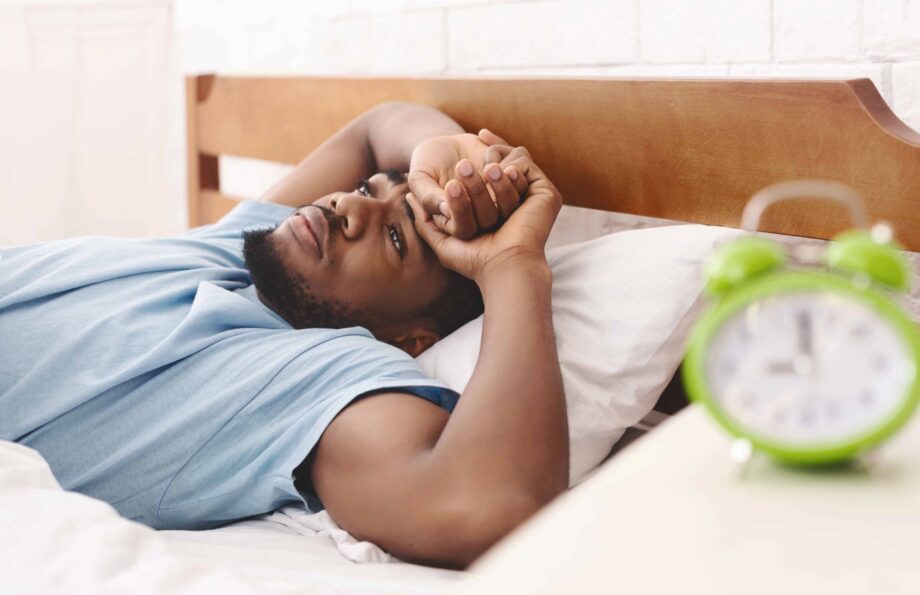Sleep Disorders
Disclosure: By clicking on the product links in this article, Mattress Nerd may receive a commission fee at no cost to you, the reader. Read full disclosure statement.
For anyone who’s spent a night tossing and turning, it’s likely no surprise that sleep problems are the second most common complaint in the doctor’s office. In fact, as many as 70 million Americans suffer from sleep disorders. Most people will experience a restless night here and there but if it happens more often, it may be time to take a closer look at the cause.
Common Causes of Sleep Disorders
Unfortunately, not every sleep disorder has a known cause. Researchers have identified a number of potential causes. Here are some of the most common:
- Mental health conditions, especially depression and anxiety disorders
- Physical conditions, such as:
- Chronic pain (fibromyalgia, arthritis, lupus, etc)
- Heart disease
- Breathing disorders (asthma, COPD, cystic fibrosis, emphysema, etc)
- Nerve disorders (Parkinson’s, epilepsy, Alzheimer’s, Multiple Sclerosis, etc)
- Certain Medications (many antidepressants, blood pressure, and other heart medications, some thyroid medications)
- Irregular sleep schedule, such as shift work
- Age

Types of Sleep Disorders
There are several categories of sleep disorders. It can be difficult to distinguish between them as the symptoms are often similar. The most obvious, of course, is insomnia, which is being unable to fall asleep. If it regularly takes more than 30 minutes for you to fall asleep, it could be a sign of a sleep disorder. Other symptoms of a sleep disorder include:
- Waking up frequently and being unable to fall back asleep; you just can’t seem to stay asleep all night
- Feeling groggy, sleepy, or otherwise lacking energy most days; often referred to as “excessive daytime sleepiness”
- Waking up feeling as if you hadn’t slept at all
- Feeling the need to nap every day, or needing coffee or other caffeinated drinks to stay awake on a consistent basis
- Mood swings, irritation, and increased depression or anxiety
- Snoring, or irregular breathing throughout the night
- Tingling sensation in arms and/or legs when you lay down every night
- Extremely vivid dreams when you’re first falling asleep, or frequent nightmares
- Physical pain or heaviness in limbs and muscles
- Headaches or migraines, increased sensitivity to light or sound, feeling on edge or easily startled
- Difficulty focusing, poor memory
If you experience one or more of these symptoms regularly, it might be a good idea to check in with your doctor. It may not be a big deal if these things happen only on occasion, but sleep is a crucial part of maintaining your overall health. The National Institutes of Health report that the average adult needs about 7 to 9 hours of sleep each night. To ensure you get good quality sleep, and the right amount of sleep, your doctor may do some testing and/or refer you to a sleep specialist to assess for a specific sleep disorder.
Insomnias
One of the most common sleep disorders in the US, insomnia is difficulty falling asleep or staying asleep. There are two categories: primary insomnia, which isn’t caused by another condition or life circumstance, and secondary insomnia, which is when another condition or life event causes the difficulty with sleeping. Both types can come and go throughout your life, and might not always require treatment. However, if it lasts longer than a week, it’s definitely a good idea to get it checked out.
Sleep Apnea and Sleep-Related Breathing Disorders
Sleep apnea is another common sleep disorder in the United States and is defined by an inability to breath normally throughout the night. There are a couple different types of sleep apnea. The most common, Obstructive Sleep Apnea, is when the soft tissues in your throat relaxes, closing off your airway. Often, snoring is a sign of sleep apnea or other sleep-related breathing disorders. When you don’t breathe normally throughout the night, you may wake up frequently even if you don’t remember it. You might also get significantly less “deep sleep,” which is the most important sleep phase for health. This is when your body does most of its healing and immune support, so missing out on deep sleep can cause more frequent illness and can cause or worsen chronic pain.
Sleep Wake Disorders
Sleep Wake Disorders are broken down into two types: Advanced Phase and Delayed Phase Sleep Disorders. These are often called “circadian rhythm disorders,” because they are caused by a disruption in your circadian rhythm, which regulates your body’s natural sleep wake cycle. Jet lag and shift-work sleep disorders are common examples.
Advanced Phase Sleep Disorder means that your body’s sleep schedule is earlier than normal. It is relatively rare. You might wake up in the early morning, between 2-5am and be ready for bed between 6-9pm. This is different from people who choose this schedule. People with this disorder still wake up early, even if they push themselves to fall asleep later. Delayed Phase Sleep Disorder is the opposite. You don’t get tired until around 2-5am and sleep until 9am-12pm. While some of these “night owls” and “early birds” enjoy their sleep schedules, for many it can lead to problems with work, school, and other responsibilities.
Hypersomnias
Hypersomnia, otherwise known as “excessive daytime sleepiness disorder (EDS),” is a neurological disorder that keeps you feeling tired all day, even when you’re getting enough sleep. There are a couple different possible causes. Some researchers believe a problem in certain areas of the brain is responsible. Others suspect that EDS is caused by overproduction of sleep-inducing chemicals in the brain. There may also be genetic and environmental factors which contribute to EDS. When other conditions are the primary cause of EDS, such as chronic fatigue syndrome, Parkinson’s, or multiple sclerosis, it’s considered “Secondary Hypersomnia.”
Parasomnias
Parasomnia is a term for abnormal behavior which occurs during sleep. The most well-known examples are nightmares and sleep-walking. Researchers still aren’t certain what causes this group of disorders, though genetics likely play a role. Other examples include night terrors, sleep paralysis, sleep talking, exploding head syndrome (EHS). Thankfully, EHS is actually relatively harmless. People with EHS report hearing things that aren’t there, like explosions, fireworks, lightening, or other loud noises. The sounds are sometimes accompanied by muscle twitching, increased heart rate, or flashes of light. It’s no surprise why this might make it difficult to fall asleep!
Movement Related Sleep Disorders
Teeth grinding and Restless Leg Syndrome (RLS) are probably the most well-known sleep movement disorders. With RLS you might experience a strong urge to move your legs while you try to fall asleep. It might feel like itching or throbbing, and can be painful. Similarly, Periodic Limb Movement Disorder (PLMD) causes twitching or jerking of the limbs after you’ve already fallen asleep. This is another one researchers haven’t quite cracked yet. They suspect genetics may play a role but it may also be tied to caffeine use, or by physical conditions like Parkinson’s.
Health Consequences of Sleep Disorders
Sleep deprivation is no joke. Several serious physical and mental health conditions are linked to sleep disorders. Unfortunately, it’s not always clear which comes first. Chronic sleeplessness is linked to increased risk of diabetes, weight gain and obesity, heart disease, depression, anxiety, and more. There’s also more risk of falling asleep while driving or working, which may be dangerous.
Treatment
If you think you have a sleep disorder, the first step should be a visit to your doctor. While there are a number of over-the-counter sleep aids out there, these are really only recommended for those who only have an occasional restless night. If symptoms stick around for more than a few days in a row, home remedies may actually make the problem worse. Check in with your doctor. Depending on the cause, there are several possible treatments: CPAP machines, which assist with breathing throughout the night for sleep apnea, Cognitive Behavioral Therapy (CBT), and prescription medications. Sleep disorders can be incredibly frustrating, but they are treatable.


